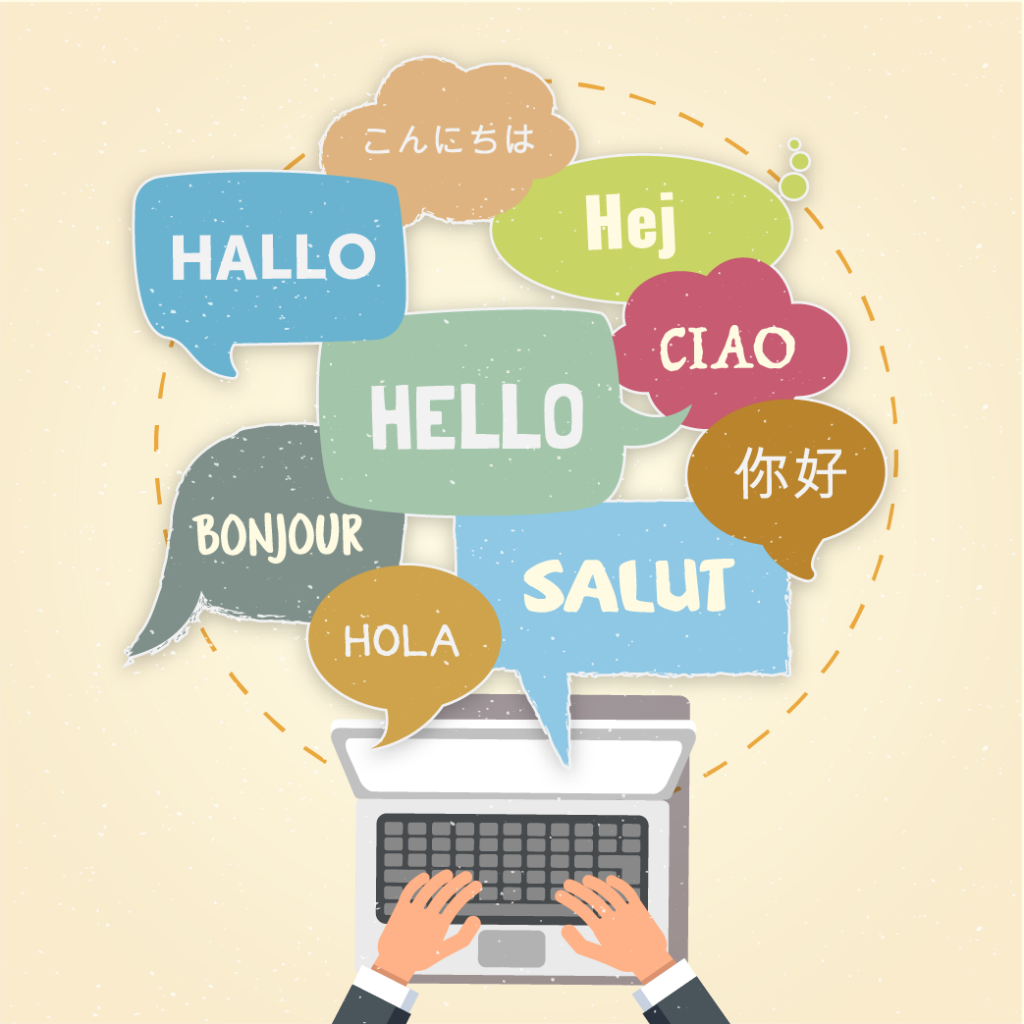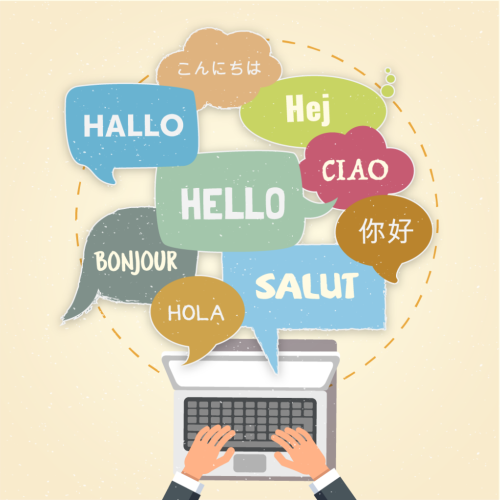“To have another language is to possess a second soul”, says Charlemagne – former king of the Franks.
Is this statement true? Does possessing two different languages indeed mean separate versions of a single person? Can learning a new language change the way you think? The answer is yes to all these questions (at least to some extent).
Acquiring a new language indeed alters one’s thought process, best stated by Federico Fellini as
“A different language is a different vision of life.”
 Learning a second language is a fruitful investment that shall provide one with both short-term and long-term results. Although it is a slow and difficult procedure, the results are worth it! Becoming a bilingual may not make you smarter (according to our convectional definition of “smart”) but it will undoubtedly be a brain-booster as proven by many researchers. People who are fluent in two or more than two languages prove to be better at multitasking, information retrieval and performing mathematical operations than their monolingual counterparts. Not only this; multilingualism can also be good for self-image and can even be a cause for delaying certain neurological disorders. It also opens a wider spectrum of careers to choose from and travel destinations.
Learning a second language is a fruitful investment that shall provide one with both short-term and long-term results. Although it is a slow and difficult procedure, the results are worth it! Becoming a bilingual may not make you smarter (according to our convectional definition of “smart”) but it will undoubtedly be a brain-booster as proven by many researchers. People who are fluent in two or more than two languages prove to be better at multitasking, information retrieval and performing mathematical operations than their monolingual counterparts. Not only this; multilingualism can also be good for self-image and can even be a cause for delaying certain neurological disorders. It also opens a wider spectrum of careers to choose from and travel destinations.
Let’s look into these benefits a bit more profoundly!
- MULTITASKING/MATH: Bilingualism requires one to switch between two languages constantly. This requires extensive vocabulary along with sentence structures. This acts as a mental exercise. It helps to strengthen the synapses between neurons thus making your brain active. Bilingual persons have enhanced cognitive skills thus making them generally more attentive to their surroundings and allowing them to be better at multitasking. Strong neurological ties also make it easier for the brain to perform complex mathematical calculations.
- SOCIALLY ACTIVE: Nothing connects people like having a common language. It is undeniable that people tend to be more friendly with those who speak their mother tongue in contrast to people speaking a foreign language. In a research conducted by psychologists, infants tend to prefer the sound of their mother tongue over that of another language. Thus, learning a new language will automatically bring you several new friends and will undoubtedly make you more socially active.
- SELF CONFIDENT: While learning a new language you will hopefully have made international friends online or maybe you will be living in their country. Your friends will appreciate that you’re learning their mother tongue and they’ll cheer you on. This is a strong source of motivation to keep learning and it will allow you to believe in yourself. You will be able slowly come out of your comfort bubble and try new things and this can elevate your self-esteem.
- CAREER OPTIONS AND TRAVEL DESTINATIONS: Many jobs require you to fluently speak more than one language and already being a multilingual will be perceived as a positive thing and it’ll look good on your personal statement. When you visit the country of your dreams trust me you will be able to relax and enjoy a lot more if you speak their native language. You will get to learn more, and the natives will feel comfortable around you!
- STRONG MEMORY: Speaking more than one language requires constant retrieval of information from the long-term memory into working memory. Thus, multilingual have a more active brain than monolinguals. Multilingual have a higher density of grey matter in the brain which means they have a higher number of neurons and synapses thus they tend to have stronger memory and are often good at memory games!
Still not enough to motivate you to start learning. Studies have proven that learning a new language can delay Amnesia and Dementia by up till FIVE YEARS!
And I believe that to truly understand a culture and their people you must speak their language.
“Language is the road map of a culture. It tells you where its people come from and where they are going.” – Rita Mae Brown.
Now that I have convinced you to start learning a new language (hopefully) I would like to go ahead and throw in some tips that I find useful!
- GRID NOTEBOOK: In case that the language you’re learning has its own alphabets then practice writing them on a grid notebook. This will ensure that you’re writing the alphabets correctly.
- PROGRESS JOURNAL: Keep track of your progress and make study goals on this journal. This unintentionally forces you to get your work done. You can also write all the vocabulary and slang you know in here and this will engrave them in your memory.
- LISTEN TO SONGS AND WATCH MOVIES/DRAMAS: This is an effective way to keep new words in mind as we recall the music, we naturally remember some words used in the song. Try watching movies first with subtitles and slowly you’ll realize that you get the hang of what they’re talking about and then you can lose the subtitles and try your best to understand them.
- GET A DICTIONARY: Buy a dictionary that translates the language you’re learning into your mother tongue. This way you will be able to associate words that are unfamiliar to with words that you have been speaking your entire life. This is a basic but also a must.
- ONLINE LEARNING: One of the best things about learning anything new in this age and time is that the material you need is easily available online. You can use language apps such as Duo-lingo or Lingo deer, YouTube videos or even take an online course.
Thus, acquiring a new language in this free time during quarantine is a great approach to being productive!
